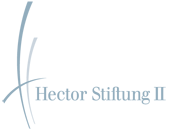Project Hector
Scientific Support for the Hector Children's Academies in Baden-Württemberg
Hector Children’s Academies are extracurricular institutions that offer support to gifted children under the age of ten; they endorse a holistic approach. The aim of the project is a scientific monitoring of the support program. This includes the support of the implementation, the evaluation of the courses offered and the investigation of related scientific questions.
With the goal of supporting gifted children the program Hector Children’s Academies was launched in 2010 in Baden-Württemberg. Hector Children’s Academies offer a voluntary extracurricular support program for particularly gifted children of primary school age with a special focus on the STEM fields. The main goals are the development of an adequate self-concept, the promotion of self-regulatory skills and social skills as well as the development of specific disciplinary competencies and general cognitive key qualifications. Hector Children’s Academies are funded by the Hector Foundation II and under the patronage of the Ministry of Education, Youth and Sports.
The program Hector Children’s Academies includes scientific monitoring from the DIPF in cooperation with the Hector Research Institute of Education Sciences and Psychology at the University of Tübingen. This includes scientific support with the implementation of the program, the development of courses, the evaluation of the program and the investigation of related scientific questions.
The project consists of four main areas.
Development of Hector Core Courses
In this part of the project, two Hector Core Courses for gifted children in second grade will be developed and evaluated. The course BioLog is designed to sustainably promote scientific interests and scientific thinking. The course MuLog intends to promote musical skills, creativity and logical thinking.
Contact: Dr. Patrick Lösche, 069-24708-240, p.loesche@dipf.de
Formative Evaluation and Development of the Hector Children’s Academies Support Program
The focus of this part of the project is the development and improvement of the program with all its components. This includes the evaluation whether and to what extent the Hector Children’s Academies can achieve their desired goals and can contribute to the positive development of gifted primary school children. In addition, generalizable findings on the development and support of gifted children shall be derived from the results. The scientific monitoring of the project is designed as a formative evaluation, so that important findings from the accompanying investigations can directly be used to improve the work of the Hector Children’s Academies.
Contact: Dr. Nina Brück, 069-24708-569, n.brueck@dipf.de
Identification of Gifted Children
This part of the project deals with the development of suitable methods for a reliable identification of gifted children in elementary school. In addition, it is empirically examined to what extent a tailored assignment of potential and support measures lead to better long-term development of gifted children.
Contact: Dr. Patrick Lösche, 069-24708-240, p.loesche@dipf.de
HCC – Qualification
The focus of this part of the project is the digital development of two Hector Core Courses, which will be used as qualification courses within the Hector Children’s Academies. The content will be converted into a blended learning format that combines digital self-study phases with accompanying in-person sessions, thus enabling flexible participation regardless of location.
Contact: Zoe Gallagher, 069-24708-284, z.gallagher@dipf.de

